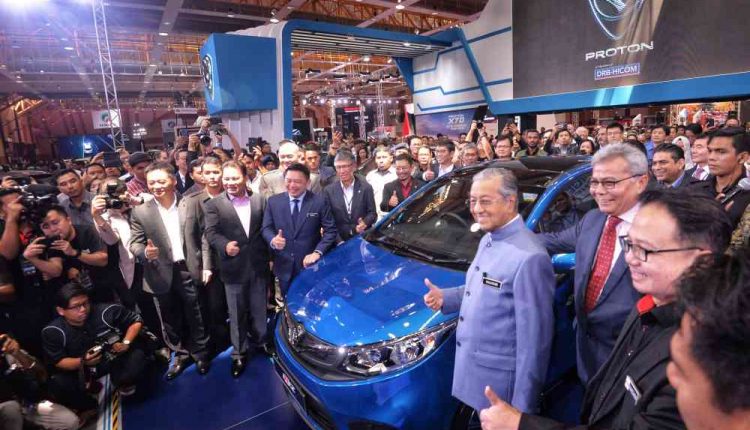KUALA LUMPUR, Feb 21 ― The National Automotive Policy (NAP) 2020 which was launched today will incorporate three new advanced technology elements namely Next Generation Vehicle, Mobility as a Service and Industrial Revolution 4.0.
Prime Minister Tun Dr Mahathir Mohamad said vehicle technology are critical development focus for today’s global carmakers to enhance vehicle safety as well as to make mobility more intelligent and environmentally-friendly.
Apart from aligning with current technological trends, the NAP 2020 he said, also targets to enhance current policies while introducing new measures, which would be a holistic industrial development policy, catering to different needs and expectations of various stakeholders within the value chain.
“In this regard, NAP 2020 has considered all possible elements in the areas of research and development, participation of domestic companies in the local and global supply chain, engineering activities, capability and capacity-building of local talent, enhancement of exports as well as investment incentives,” he said in his keynote speech at the launch of NAP 2020, here today.
Dr Mahathir added the automotive industry and related sectors have employed more than 600,000 people and contribute 4.0 per cent to Malaysia’s gross domestic product.
According to him, there are more than 20 manufacturing and assembly plants in the country producing passenger and commercial vehicles, as well as motorcycles and scooters.
“Moving downstream, there are about 53,000 aftermarket establishments and more than 600 automotive parts and component manufacturers that range from body panels, trim parts, powertrain parts, rubber parts and electrical and electronic parts.
Dr Mahathir stressed that all these high-tech infrastructure and facilities will essentially help reduce the cost of production while completing the sustainable production cycle in the automotive industry as well as in the entire manufacturing sector in Malaysia.
“I am glad to know that the NAP 2020 will have plans to realise this through the designation of a dedicated industrial zone for circular economy business practices for the automotive industry,” he said.
The Prime Minister also reminisced when the first national car was launched in 1983.
He said the first national car aimed to turn Malaysia into a regional manufacturing powerhouse, shifting from a resource-rich country whose international presence depended much on international trade of agriculture commodities with a focus on the manufacturing sector.
“When we started this industry more than 35 years ago, many were sceptical about our aspiration. But today, Malaysia has become one of the most competitive markets for the automotive industry, and it has gone through many phases of development with many success stories to be told,” he said.
He added that the automotive sector is the logical choice as it was able to provide far greater economic spill-overs and create more job opportunities for the people.
With industrialisation, other related manufacturing sub-sectors were also created and grew in tandem with increased demands for raw materials such as rubber, steel, plastics and petrochemicals, he said.
“Apart from that, industrialisation opened up more services-related sectors and provided high-value downstream business and employment opportunities such as in the areas of wholesale, retail, after-sales services and marketing,” said the Prime Minister.
The automotive industry according to the Prime Minister, goes beyond mere car manufacturing as it also spurs the development of new technologies that will in turn complement other industrial sectors.
“The technologies embedded within the car provide immense opportunities for related industrial sectors to break new grounds. Linkages to both upstream sectors such as steel, plastics and rubber and the downstream value chain demonstrate that the automotive industry is one of the most important and strategic contributors to the overall growth of the manufacturing sector,” he said.
Meanwhile, in supporting the green technology approach, Dr Mahathir said that starting Jan 1, 2020, palm biodiesel has been upgraded from B10 to B20 category in the transport sector and this will continue to be enhanced to B30 before the year 2025 or even earlier.
To facilitate the implementation, NAP 2020 will provide supporting measures including the development of standards for testing and research to support the increase in blending of palm oil biodiesel.
“All the emphasis under the NAP 2020 are our commitment to the industry that we too are moving in the same direction with other major countries in keeping up with global trends, be it technologically or environmentally,” he said. ― Bernama

